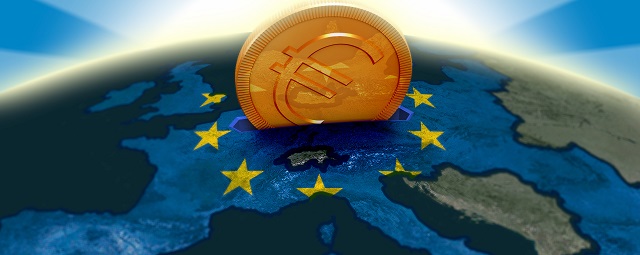Lack of growth stands as the major shortcoming crippling the European Union. Unemployment and poor demand prospects fuel a vicious circle driving downwards economic activity. It also raises formidable hurdles for implementing a re-balancing of the main imbalances inherited from the past easy-going years.
The debt trap confronting many companies and families, acts as a heavy-burden legacy preventing a swift and orderly deleverage, increasing the acute credit crunch currently endured. Public finances, for all the efforts undertaken, prove unable to curb a mounting debt that will trigger deep troubles sooner or later.
Some argue that the worst is over. Yet, while recession seems to be slowly subdued, no sign of a solid growth is in sight. So long as imbalances and a deep-rooted competitive gap weigh heavily on many European economies, there is little hope a broad-base recovery might materialize. Acting urgently to overcome this protracted mood seems essential to ring-fence the Eurozone from potential disarrays. Unfortunately the next Summit isn’t likely to deliver much stamina.
Plans to set up a number of facilities for combatting the awesome youth unemployment levels and providing credit to hard-pressed SMEs, are indeed welcome. But the amounts likely to be put on the table rank as a drop of water in an ocean of staggering needs. Leaders meeting in Brussels may feel comforted by the political message sent to citizens. But they will not fool the markets, prone to cast a skeptical view on a package widely judged as mere window-dressing. After all, the much heralded growth and jobs strategy approved last year, stuffed in a fat €120 billion envelope, soon fell into oblivion.
Frontloading EU budgetary facilities is to be considered as a commonsense initiative. But the meagre size of the resources being mobilized will prove unable to change the current state of play. Should Europe enforce the highly touted unified economic policy, aimed at solving its governance problems, such a move would fuel more growth than any funding scheme. But little can be expected from a discipline confined to imposing stringent conditions on deficit countries while only polite invitations are addressed to surplus economies for expanding their domestic demand. A blatant asymmetry that leads to mounting contracting pressures and to a pronounced growth gap.
As we move into troubled waters following the FED intention to taper off its massive asset buying scheme, the ECB is bound to take bold steps to protect both the European economies and the common currency. Otherwise we may run into severe turbulences in the coming months. The interest rate hike will inflict damage on public finances and wreak havoc on the heavily indebted private sector in vulnerable countries. A nasty prospect with the potential to derail the feeble chances of recovery.
The rising cost of money exerts a depressive effect that should be countervailed by a further softening in monetary policy. Talking down the Euro would also help, but the ECB has no experience in using that kind of subtle language. Even if it were inclined to engage in expansionary measures, obedience to Berlin would prevail, preventing any temptation of deviating from the current low-key stance.
Draghi must show further repentance and contrition to be pardoned for the deadly sin of buying limited amounts of sovereign bonds and pledging to take every necessary step to save the Euro. A most severe hindrance when turmoil is ringing at your door. Growth will have to wait for better times implausible to materialize in the foreseeable future. A dramatic scenario when so many flock in the dole queues and the prospects for a robust recovery seem so slim.






Be the first to comment on "All you need is growth"